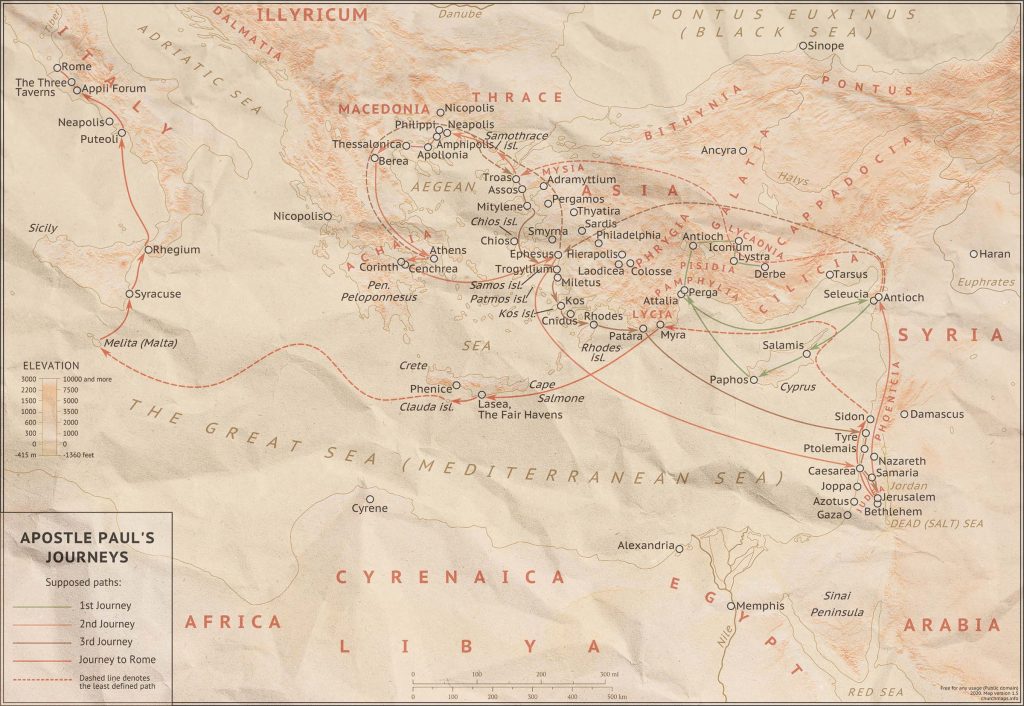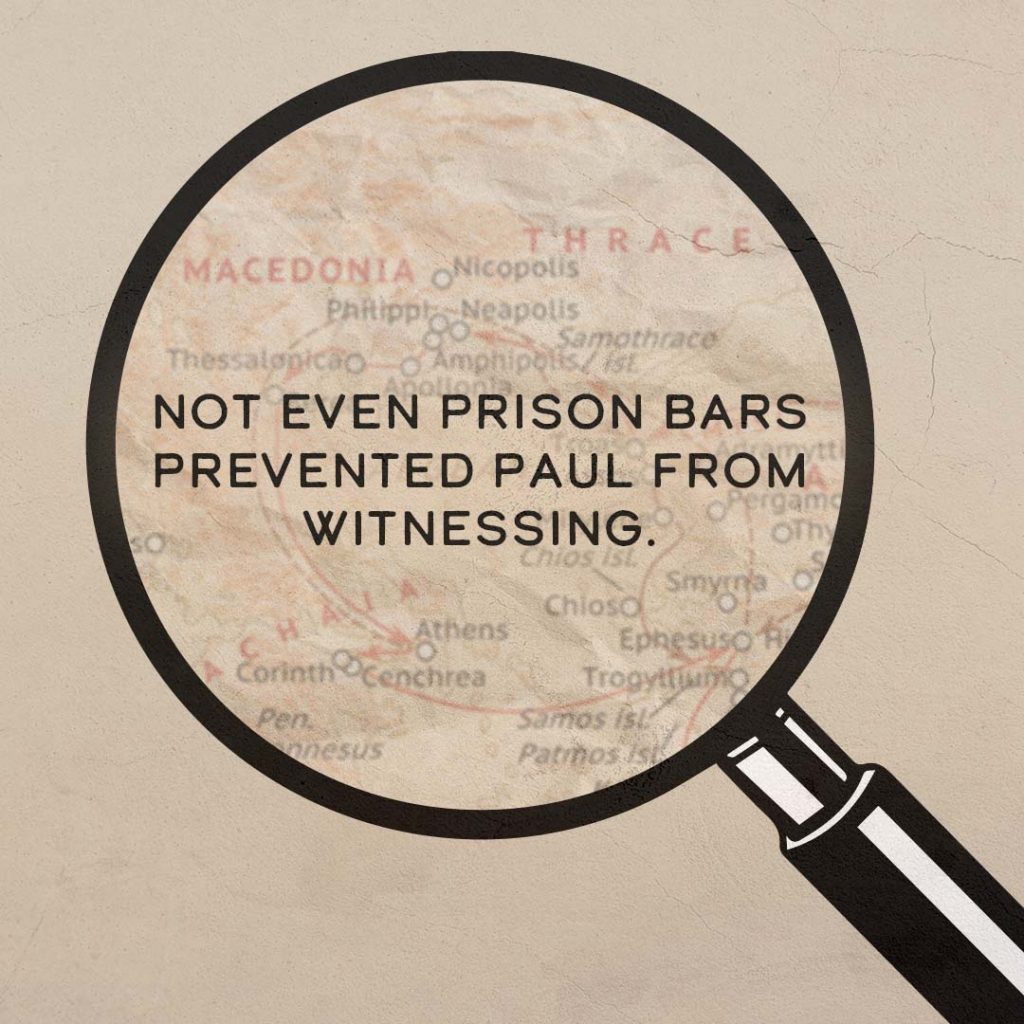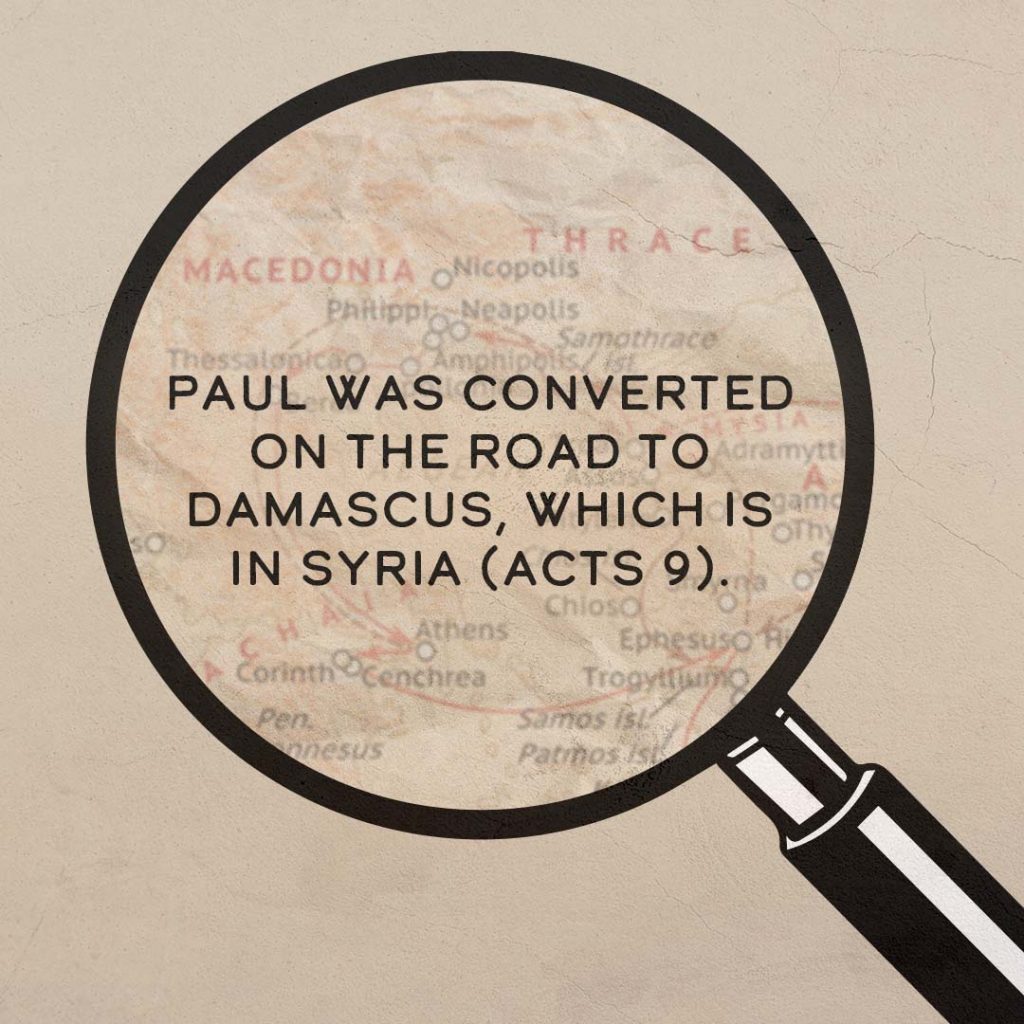Each One Reach One
 by William Mundt
by William Mundt
An abbreviated history of missions is this: Peter wrote, “Be prepared to make a defence to anyone who asks you for a reason for the hope that is in you” (1 Peter 3:15). And believers were prepared to make a defence. And they did.
Believers considered it an honour and a privilege to talk about Jesus’ life, death, and resurrection and the difference Christ made in their lives. Initially, mission was a lot of “each one reach one.” Christians talked about their faith with relatives, friends, employers (even slaves witnessed to their masters), and acquaintances so much that pagans complained. Celsus, an outspoken critic, objected to Christian craftsmen sharing their faith while at work in private homes, as if they knew better than the head of the house what was true. When severe persecution scattered all but the apostles, “those who were scattered went about preaching the Word” (Acts 8:4).
Christian evangelism was unique in this way. Milton Rudnick, former president at Concordia Lutheran Seminary in Edmonton, provides insights in his 1984 book Speaking the Gospel Through the Ages. “From the very beginning,” he writes, “people who encountered Jesus were moved to tell others about Him.” The most important method of evangelism was personal conversation. As Peter said, “We cannot but speak of what we have seen and heard” (Acts 4:19). As the church grew, evangelism became more organized. Public preaching became a standard and effective outreach. Prospective Christians were invited to attend worship (at least portions of the service). Great preachers attracted even non-Christians. Literature was used extensively. Apologetic writings defended the faith against false accusations. Evangelistic tracts pleaded with readers, Rudnick says, to “accept Christ as a superior alternative.”
The impulse to share was reinforced by the command to share. Jesus sent out not only the Twelve but other disciples too (Luke 10). After His resurrection, the command to tell was emphatically stressed (Matthew 28:19-20). Initially, the strategy seems to have been “tell everyone.” “In a way,” Rudnick notes, “the evangelizing of the Roman world just happened as Christians shared their faith wherever they happened to be.” There was more to it than just that, of course: mission trips were planned, workers commissioned and sent out, letters (epistles) written and circulated, oversight set up for established congregations, and so forth.

Evangelism is more of an attitude than a program. There is no one inspired way of “doing evangelism.” Robert Kolb in A Lutheran Understanding of Evangelism tells us:
“In the early church when presenting the Gospel to the Jew, the approach was through Old Testament fulfillment, or through the feeling of guilt. When presenting the Gospel to the Greek the avenue of approach was his loneliness, a purpose to life, Christ as the Logos and the Lord.”
The challenge remains for all Christians to “be evangelizing,” for each one to reach one. And this impetus comes from the Gospel: “We love because He first loved us” (I John 4:19). The Gospel of John and the first Epistle of John teach us much concerning evangelism.
Other things drew attention too. Pentecost saw “added that day about three thousand souls” (2:41). Signs and wonders, such as Peter healing a lame man (Acts 3) drew attention too—as did Christians’ communal lifestyle. Jesus had promised: “By this all people will know that you are my disciples, if you have love for one another” (John 13:35). Erich Beyreuther reminds us that Christianity was visibly different from other religions in three particular ways: 1) Christians spoke of one God, not of gods; 2) this God was gracious, not arbitrary; and 3) faith had an impact on one’s social and personal life. And when opposition arose, a Christian’s often calm acceptance of death—or, as in Stephen’s martyrdom, a plea for God to forgive his executioners (Acts 7)—provided a powerful witness. Miracles often accompanied arrests: Peter was imprisoned but freed by an angel; Herod was struck dead. The result? That often-reoccurring line: “But the Word of the Lord grew and multiplied” (Acts 12:24).

Paul’s Missionary Journeys.
Paul is perhaps the greatest missionary of all. As a Pharisee, he persecuted the church massively and was known and feared because of it: “Going from house to house, he dragged off both men and women and put them in prison” (Acts 8:3). On the way to Damascus, Jesus stopped him in his tracks. After Ananias restored his sight and baptized him, Saul, completely transformed and baptized, applied his zeal to proclaiming Jesus as the Son of God.
In Chapter 13 of Acts, we come to the first of Paul’s missionary journeys. This took him to Cyprus, Paphos (where he was renamed Paul – see Acts 13:9), Antioch, Iconium, Lystra, and Derbe, where the Galatian church was founded. During this journey, he wrote to encourage the Galatians and to correct a false understanding of the Gospel which suggested one needed Christ plus the Law to be saved.

The book of Acts tells us how the Christian Church grew after Christ’s Ascension. During the first five centuries of its existence the Christian church experienced spectacular growth. Numerically, it increased from about 4,000 followers after Jesus’ resurrection to 43.4 million nominal adherents representing 22.4 percent of the world population early in the sixth century A.D. Geographically, it extended from its starting point in Palestine to all parts of the Roman Empire and beyond. Not long after Emperor Constantine’s conversion, Christianity would become the only legal religion by the end of the fourth century. Paganism and heresy were repressed, and a flood of converts entered the Church. “It was now safe, even advantageous, to be a Christian,” as Rudnick writes.
The second journey (49-52 A.D. – see Acts 15:36-18:21) took him to Philippi, Thesassalonica, Beroea, Athens, and Corinth. He often retraced his steps to strengthen, correct, and encourage believers. During these journeys, Paul wrote multiple letters that became known as the epistles (including 1 and 2 Thessalonians) because he had to leave the people in the midst of persecution and was not there to walk through it with them.
On Paul’s third journey (53-57 A.D. – see Acts 18:23-21:14), he encouraged the churches planted on his first two journeys. He stayed in Ephesus two to three years. Other stops included Galatia, Phrygia, and Caesarea, where he spent two years in prison. He ended up in prison in Rome (Acts 18:22-28:31). But even here he continued to preach and teach “quite openly and unhindered” (Acts 28:31). The story in Acts ends without telling us what happened to him, although tradition has it that he was released (cf. 2 Timothy 4:16-18).
His approach in each case was the same as Jesus’ directive to His disciples: “Go to the lost sheep of the house of Israel. And proclaim as you go, saying, ‘The kingdom of heaven is at hand.’ Heal the sick, raise the dead, cleanse lepers, cast out demons” (Matthew 10).
So, Paul began in the synagogues since the Jews knew the prophecies and eagerly awaited the Messiah. He began with reminders of God’s grace and mercy and promises. He preached (once so long that a young man fell asleep and fell out of a window – see Acts 20:7). He argued (see Acts 17:2). Some were persuaded and believed. Others, at Beroea, studied the Scriptures for themselves to test his words. Inevitably, some Jews got jealous and tried to put a stop to Paul’s success, often leading to arrest.

Roman prisons could be terrible or relatively pleasant, depending on one’s citizenship. Prisoners were held awaiting trial or execution. Paul was chained in a common holding cell in Philippi (Acts 16:23– 30), imprisoned in better conditions at Caesarea (Acts 23:35), and held in relative comfort under house arrest in Rome (Acts 28:16). In Rome, Paul was responsible for maintaining himself during his imprisonment, including his meals and clothes (Acts 28:30). Paul’s Roman citizenship meant he was eligible for a daily food allowance, but Paul depended on his friends and fellow believers to supply this food. While under house arrest in Rome, Paul was guarded around the clock by soldiers of the elite Praetorian Guard. Sometimes prisoners were chained to a guard. Four Epistles were written by the apostle during his time under house arrest in Rome (60-62 AD): Ephesians, Philippians, Colossians, and Philemon. He was later rearrested and executed. But not even prison bars prevented him from witnessing. Although imprisoned and unable to travel, Paul, nevertheless, “welcomed all who came to him, proclaiming the kingdom of God and teaching about the Lord Jesus Christ with all boldness and without hindrance” (Acts 28:30).
There were also internal struggles. In Antioch, a dispute arose over how Jewish one had to be in order to be a Christian (not unlike old arguments about how German one had to be to be a good Lutheran). Some preached that Gentiles must be circumcised and follow Jewish traditions. A council (the first church convention?) in Jerusalem decided: “we should not trouble those of the Gentiles who turn to God but should write to them to abstain from the things polluted by idols, and from sexual immorality, and from what has been strangled, and from blood” (Acts 15:19-20). After this Paul and Barnabas had a sharp disagreement about John Mark, who had deserted them during their first journey. In the end, they went their separate ways––Barnabas took John with him and Paul took Silas.
Paul understood the culture and traditions he was stepping into. In Acts 17, he begins reasoning with Greek philosophers, speaking to them in a familiar way. His address to the Athenians in Acts 17 provides useful hints for outreach approaches:
- He went where the people were and where public speaking was common (v. 22).
- He began with a compliment, commenting on how religious the people were.
- He drew their attention to their own desire for more revelation (v. 23).
- He offered to “fill in the gaps” in their knowledge.
- He gave a concise presentation including all the main points.
- When “some scoffed” (v. 32), he left but remained open to further discussion.
- He rejoiced that some did become believers (v. 33).
External factors aided this work of evangelism:
- Roman peace and order let people travel freely and safely;
- There was a common language (Greek) throughout the empire;
- Other religions were familiar with stories of dying and rising gods as well as rites similar to Baptism and the Lord’s Supper.
- Jews had been scattered far and wide throughout the Middle East as prisoners of war or businessmen.
There was also formidable resistance. Religious, cultural, and political opposition culminated in persecution. Doctrinal controversies disrupted the Christian community and confused outsiders. Apathy and worldliness periodically set in. Jewish antagonism remained aggressive for 150 years after Paul. Deeply offensive to them was preaching that the Messiah had already come and that Christians were the new Israel. Platonic thinkers found it unbelievable that a god would leave the heavens to live on earth, and they disdained the concept of a resurrection. Greeks were repelled by how new Christianity was. The cross and Christ crucified were regarded as absurd (see 1 Corinthians 1). Intellectuals were contemptuous of truth claims by unlearned people, such as former fishermen (see Acts 4). Strict moral demands seemed silly and were virtually unknown in other religions. Christians seemed anti-social because they did not attend the theatres or games and refused to serve as soldiers or magistrates. And there was evangelistic competition; Judaism was remarkably zealous, as Jesus Himself notes on one occasion: “For you travel across sea and land to make a single proselyte” (Matthew 23:15). In brief, anyone convinced of a point of view wanted to find followers and sought ways to convince others. The same is still true.

Paul was converted on the road to Damascus, which is in Syria (Acts 9). Putting all the accounts together, Saul spent “several days” in Damascus (Acts 9:20–22). From there, according to Galatians 1:17, he left Damascus and went into Arabia, which may mean the surrounding desert countryside. Galatians 1:18 says that “after three years” he went to Jerusalem. The desert was his seminary experience: “For I would have you know, brothers, that the gospel that was preached by me is not man’s Gospel. For I did not receive it from any man, nor was I taught it, but I received it through a revelation of Jesus Christ” (Galatians 1). Some speculate that Paul spent this time in relative seclusion, perhaps living as a hermit and sorting out the implications of his new faith, but Acts 9:22 does not present the picture of a man who is just “figuring it out”: “Saul grew more and more powerful and baffled the Jews living in Damascus by proving that Jesus is the Messiah.” When he left Damascus, with its significant Jewish population, it is reasonable to assume that he did very thing that Jesus had called him to do—preach the Gospel to the Gentiles.
When King Solomon observed that “there is nothing new under the sun” (Ecclesiastes 1:9), he was not talking about evangelism and mission—but he could have been. Every belief system in history and the world has made efforts to recruit and retain followers, from Judaism to pagan religions, communism to cancel culture. It is good to study the various approaches different faiths and philosophies have used historically to promote their system of thought and to supplant existing ones—so that we might be both “prepared to make a defence” against others as well as to clearly and effectively “share the hope” of the Gospel within us.
———————
Rev. Dr. William Mundt is professor emeritus of Concordia Lutheran Theological Seminary in St. Catharines, Ontario.



